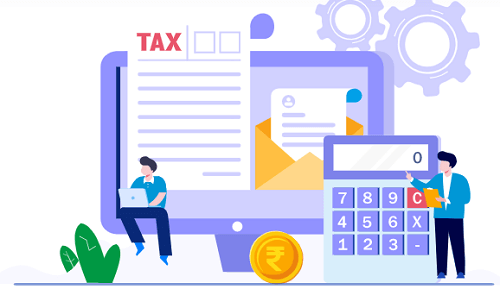The top 3 tax fines and how to avoid them

During tax season, nobody sets out to figure out a way to give the IRS more money. But a lot of people can end up doing it due to unintentional mistakes. For incredibly frequent errors, the IRS may apply certain tax penalties. Knowing and adhering to the tax regulations, including deadlines, will help you avoid making these mistakes and in turn avoid tax penalties.
Things don’t always go according to the plan when you are preparing your tax returns and delivering your taxes on time. Even with the best of intentions, underestimating your quarterly payments, forgetting to file your taxes, or writing the IRS a check that bounces could result in a late tax penalty. Errors occur, but understanding the IRS’s penalties and how they are determined might be helpful.
It’s also a good idea to be aware of your options if you have received an IRS penalty. The IRS provides information on how to avoid three tax penalties that are frequently imposed on people.
- This year, April 18th, 2022, is the due date for federal income tax returns. You have until October 15 to file your return if you need more time; if so, you can ask for an extension. If you fail to obtain an extension or if your extended due date is missed, the IRS will impose a failure to file penalty.
- Your return will be penalized 5% of the amount of the unpaid tax for every month or a part of a month that it is late. It is nonetheless restricted to only 25% of your overall amount. If your return is late for more than 60 days, there is a minimum penalty. The minimum penalty is $435 for returns that are due after January 1, 2020, or 100% of the tax due, whichever is less.
- You have a little more room to maneuver if you are anticipating a return. To avoid paying a late filing penalty if you are unable to pay the amount owed, file your return before the deadline. The IRS won’t charge you a late filing penalty if you file your tax return on time. Your refund could be forfeited if you don’t file your recovery within three years of the actual due date.
Repercussions for home office deductions
If you have a home childcare business, utilize a room of your house as your office, or set up a closet or other space to keep inventory, you can easily claim a deduction for your home office. Use your home office entirely and frequently as your main location of work. You can merely deduct the percentage of the room utilized for business if your office doubles as a guest bedroom. If the IRS decides that a taxpayer is ineligible for the home office tax deduction, the repercussions could be dire. Similarly, you have to make sure that you don’t miss report other information like self-employment health insurance amount correctly to the IRS.
Lack of payment
Whether you file your tax return timely or ask for an extension, the IRS requires you to make the required tax payment by the due date. If you don’t pay by then, the IRS will assess a failure to pay a penalty against you.
This tax penalty is 0.5% of the amount of tax that must be paid each month — up to a maximum of 25% of the amount owed. The IRS will reduce your late tax penalty to 0.25 percent of the amount of tax you owe while the installment plan is in effect.
The failure-to-file and failure-to-pay penalties are imposed for the entire month, even if the outstanding sum is paid before the end of the month. Pay your tax in full before the tax deadline, even if you ask for an extension, to avoid or at least reduce penalties. When both penalties are applicable in the same month, the failure-to-file penalty is reduced by the amount of the inability to pay penalty, bringing the total loss to file and failure to pay for any month to 5%. If you owe a large sum that you can afford to pay, pay what you can before the due date and the remaining balance as soon as you are able to. Consider asking for an installment agreement if you are unable to pay the balance by the due date but still have a few months to go.
Bottomline
The best plan for action is to take every precaution to avoid penalties, in our opinion. The IRS occasionally offers tax penalty relief to people who have received penalties. The three most frequent tax penalties and ways to avoid them are described in the above information.
You can easily avoid them by using advanced tax tools like FlyFin. It’s an A.I.-powered tool that’s especially designed for independent contractors, freelancers, 1099 employees and gig workers.




